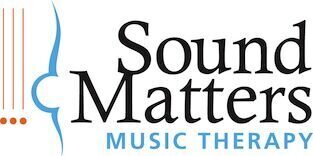A few days ago, I provided some description of some of the work I do in the care center. Though the transitional care unit (TCU) where I see residents once a week is inside the care center, the unit is something of a different animal.
In the TCU, the residents live for as many as 90 days. Many of these residents had recently suffered a fall, a stroke, or some other injury or trauma that requires rehabilitation. Because these residents and their families are not preparing them to live on the unit permanently, most of the residents are not active members in the care center community events and activities.
My goals with this group vary widely. I never know who I will see. I can hardly predict the size of the group. The majority of these residents are occupied with other therapies and so are not available for music therapy on the Thursday mornings when I offer it. Rarely do I see the same face two weeks in a row.
For these reasons, I make flash assessments frequently. One of the five residents I gather may need work recovering her ability to articulate clearly following a stroke. Another resident may no longer be able to function on his left side. Still another has become so depressed he sleeps for most of the day.
So, how do I provide to residents in the TCU?
I meet them where they are, first and foremost. If the energy of the group is upbeat, I align myself to that. If it’s contemplative, I follow that lead. For instance, one resident wanted to process how she felt about the drastic change in her voice. She reminisced about how much she sang when she was young. Sometimes these particular groups are filled more so with processing change than anything else.
If the group seems cheerful and cordial with one another, I might distribute handheld percussion instruments. I may target gross motor function, layering more complex movement directionals given observed ability. I might use paddle drums with these residents as well.
When the group is quiet or agitated or confused, I might begin with familiar, topical songs to focus attention. From there, I might move to seeing the residents on a mini 1:1 basis.
I almost always feel excited after leaving this group. I can see active participation from many of these residents, perhaps because they are accustomed to having to work quite hard in their stay on the TCU.
